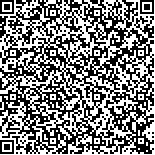| 引用本文: | 李映新,黄媛恒,林兴,黄晓亮,黄仁彬.17-甲氧基-7-羟基-苯骈呋喃查耳酮对小鼠心室肌细胞膜钠电流的影响[J].中国现代应用药学,2018,35(8):1185-1188. |
| LI Yingxin,HUANG Yuanheng,LIN Xing,HUANG Xiaoliang,HUANG Renbin.Effect of 17-Methoxyl-7-hydroxyl-benzofuran Chalcone on Sodium Current in Isolated Ventricular Myocytes of Mouse[J].Chin J Mod Appl Pharm(中国现代应用药学),2018,35(8):1185-1188. |
|
| 本文已被:浏览 2264次 下载 1411次 |

码上扫一扫! |
|
|
| 17-甲氧基-7-羟基-苯骈呋喃查耳酮对小鼠心室肌细胞膜钠电流的影响 |
|
李映新,黄媛恒,林兴,黄晓亮,黄仁彬
|
|
广西医科大学药学院,广西医科大学实验生理科学实验中心,广西医科大学,广西医科大学药学院,广西医科大学药学院
|
|
| 摘要: |
| 目的 观察17-甲氧基-7-羟基-苯并呋喃查耳酮(YLSC)对小鼠心室肌细胞膜上钠电流的影响。方法 采用Langendorff逆行主动脉灌流法急性分离昆明小鼠心室肌细胞,全细胞膜片钳技术记录心室肌细胞膜钠电流(INa)在灌流YLSC前后的变化情况。结果 YLSC灌流可使INa的电流幅值减小,I-V曲线上移,但I-V曲线形状、最大激活电位和反转电位基本不变。INa的电流密度在膜电位-40 mV达到最大峰值,给药前的峰电流密度值为(-22.31±2.20) pA/pF,400 μmol·L-1 YLSC灌流给药后为(-10.64±0.97) pA/pF,与给药前比较有显著差异(n=5,P<0.05),对钠电流的抑制率为(48.9±3.6)%;400 μmol·L-1 YLSC给药前后的半数激活电压分别为(-49.51±1.22) mV和(-48.13±2.34) mV,斜率因子分别为2.43±0.36和3.39±0.64,给药前后无显著差异(n=5)。YLSC使失活曲线左移,给药前后半数失活电压分别为(-73.29±1.09) mV和(-76.79±1.62) mV,斜率因子分别为-12.13±2.15和-11.45±1.91,给药前后有显著差异(n=5,P<0.05)。结论 YLSC能通过降低钠通道失活电压,促进钠通道失活而抑制钠通道电流。 |
| 关键词: 玉郎伞查耳酮 心肌细胞 钠通道 全细胞膜片钳技术 |
| DOI:10.13748/j.cnki.issn1007-7693.2018.08.015 |
| 分类号:R285.5 |
| 基金项目:广西科学研究与技术开发计划项目(桂科攻0630002-2A);广西中医药科技专项课题(GZKZ10-122) |
|
| Effect of 17-Methoxyl-7-hydroxyl-benzofuran Chalcone on Sodium Current in Isolated Ventricular Myocytes of Mouse |
|
LI Ying-xin,HUANG Yuan-heng,LIN Xing,HUANG Xiao-liang and HUANG Ren-bin
|
|
Pharmacutical college of Guangxi Medical University,Experimental Center of Experimental Physiological Science,Guangxi Medical University,Medical Scientific Research Center of Guangxi Medical University,Pharmacutical college of Guangxi Medical University,Pharmacutical college of Guangxi Medical University
|
| Abstract: |
| OBJECTIVE To investigate the effect of 17-methoxyl-7-hydroxyl-benzofuran chalcone(YLSC) on sodium current in isolated ventricular myocytes of mouse. METHODS Acute isolation by enzymatic dissociation was used to obtain single myocytes through Langendorff retrograde aortic perfusion, INa was recorded before and after YLSC perfusion by the whole-cell patch clamp in voltage clamp mode. RESULTS YLSC blocked INa with the current-voltage (I-V) curve shifting upward, but the reversal potential and maximum activate potential of I-V curve were not changed by YLSC. The peak current density was obtain under the membrane voltage of -40 mV, and the peak density was decreased from[(-22.31±2.20)pA/pF] to[(-10.64±0.97)pA/pF] after perfusion with 400 μmol·L-1 YLSC, the inhibition rate was (48.9±3.6)%(n=5, P<0.05). No significant change of the activation curve in the presence of 400 μmol·L-1 YLSC was observed. The 50% of activation voltage of INa was changed from(-73.29±1.09)mV to (-76.79±1.62)mV and the slope was 2.43±0.36 to -11.45±1.91 in the presence of 400 μmol·L-1 YLSC, which was no significant statistical meaning. The inactivation curve of INa had significant changed in the presence of 400 μmol·L-1 YLSC. The 50% of inactivation voltage of INa was from (-73.29±1.09)mV to (-76.79±1.62)mV, and the slope was from -12.13±2.15 to -11.45±1.91(n=5, P<0.05). CONCLUSION YLSC can block the INa by accelerating steady-state inactivation voltage. |
| Key words: 17-methoxyl-7-hydroxyl-benzofuran chalcone ventricular myocytes sodium channel whole-cell patch technique |
